Research Skills Program
The HeartShare Research Skills Program is a 1-year, full-time research fellowship intended for post-doctoral trainees interested in gaining clinical research skills in data science. The program includes an intensive 3-month bootcamp led by the Northwestern Computer Science Department in which trainees receive hands-on training in data management, programming, and application of machine learning and artificial intelligence approaches to clinical research in data science. The remaining 9 months are dedicated to completing a mentored research project related to HFpEF, using the approaches they learned in the data science bootcamp. Fellows are paired with one clinical mentor and one data science mentor and attend monthly virtual work-in-progress and career development meetings, as well as HeartShare committee meetings relevant to their proposed research project. Fellows have access to extant datasets/images and EHR data compiled for HeartShare to use for their research project and are immersed in the HeartShare research environment.
Research Skills Program Co-Chairs
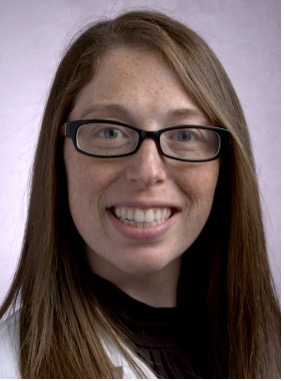
Jordana Cohen, MD, MSCE
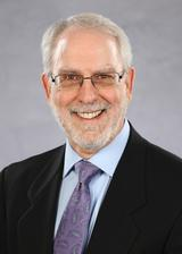
Phil Greenland, MD
2023-24 Research Skills Trainees

Laura P. Cohen, MD, MPP, Instructor in Medicine, Physician Investigator, Massachusetts General Hospital
Bio: Dr. Laura Cohen is a non-invasive cardiologist and echocardiographer at Massachusetts General Hospital in Boston. She completed her undergraduate studies at Washington University in St. Louis and her medical degree at Harvard Medical, where she jointly earned a Masters in Public Policy from the Harvard Kennedy School. Her research interest is in risk factors associated with the development and progression of HFpEF. Her work is particularly focused on behavioral and lifestyle patterns that contribute to the disease process, and evaluating echocardiographic parameters associated with HFpEF subtypes.
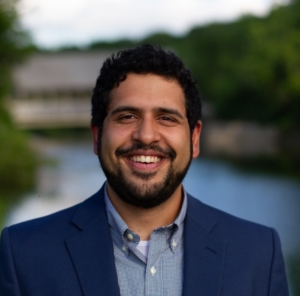
Amogh Karnik, MD, MSc, Northwestern University
Bio: Dr. Amogh Karnik is a Cardiovascular Disease fellow at the McGaw Medical Center of Northwestern University, and Artificial Intelligence in Cardiovascular Disease fellow at the Bluhm Cardiovascular Institute at Northwestern Memorial Hospital. He obtained a Bachelor of Science in Biomedical Engineering and a Master of Science in Global Health at Duke University before earning his M.D. at the Geisinger Commonwealth School of Medicine. He completed his internship, residency, and chief residency at Dartmouth-Hitchcock Medical Center and the Geisel School of Medicine at Dartmouth.
His primary interests are focused on the ways that easily accessible, low-cost technologies can be leveraged to improve detection and diagnosis of cardiovascular disease using deep learning and multimodality imaging. He is hopeful that work in these areas can contribute to health equity and democratize access to specialized care not only in our local communities, but all over the world.

Erick Romero, MD, MAS, University of California, Davis
Dr. Erick Romero is a postdoctoral fellow in the Division of Cardiovascular Medicine at the University of California, Davis. His educational background includes a M.A.S. in Clinical Research and an M.D. in Medicine. Dr. Romero has a keen interest in medicine and data science, with a special focus on data-driven approaches for clinical applications in cardiovascular medicine. His contributions to the field include the development of innovative methods for the diagnostic classification of heart transplant rejection, the implementation of real-time data-driven telemonitoring approaches, and predictive risk models to inform quality improvement strategies. With an emphasis on data-driven medicine, Dr. Romero aims to make contributions to the field of clinical medicine through translational applications.
2022-23 Research Skills Trainees
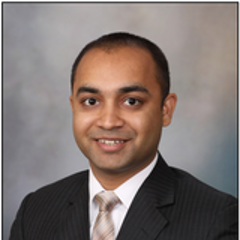
Ahmed Fayyaz, MD, Mayo Clinic
Bio: Dr. Ahmed U. Fayyaz is a postdoctoral fellow in Dr. Margaret M. Redfield’s laboratory, and a second-year Ph.D. student in Clinical and Translational Science, with a particular focus on contemporary biology and machine-learning tools, at Mayo Clinic, Rochester MN. Immediately after graduating from medical school in his native Pakistan, Dr. Fayyaz came to Mayo Clinic as research trainee in cardiovascular pathology division and learned basic cardiovascular and autopsy pathology from distinguished Mayo cardiovascular pathologists, Drs. William D. Edwards, and Joseph J. Maleszewski. At the completion of this appointment, Dr. Redfield hired Dr. Fayyaz to head a collaborative project regarding human pulmonary vascular remodeling in pulmonary hypertension related to heart failure. During his postdoctoral training at Dr. Redfield’s lab and collaborating with Dr. Barry A. Borlaug and Dr. Surendra Dasari, Dr. Fayyaz continues to learn and gain expertise in tissue research, spatial omics technologies, bioinformatics and computational biology, machine-learning, generating translational large animal models, and circulatory hemodynamics. Currently Dr. Fayyaz is working on delineating the pathobiology of development of HFpEF and pulmonary vascular remodeling secondary to pulmonary hypertension due to left heart diseased using both human cardiopulmonary tissue and experimental translational animal models through spatial multi-omics technologies and hopes to find therapeutic targets for further translational research.

Hanna Gaggin, MD, MPH, Massachusetts General Hospital
Bio: Dr. Hanna Gaggin is a general cardiologist, educator and clinical investigator at Massachusetts General Hospital and Harvard Medical School. She is interested in single and multi-center clinical trials to evaluate heart failure with a focus on heart failure with preserved ejection fraction and cardiac amyloidosis phenotypes. She is a member of the Cardiovascular Medicine Section Leadership Council in the Cardiology Division and the Subspecialty Core Educator for the Internal Medicine residency at Massachusetts General Hospital. Dr. Gaggin graduated from the Eastern Virginia Medical School in 2003. She completed her Internal Medicine residency at the University of Virginia Health System, followed by an MPH at Harvard School of Public Health with a concentration in Quantitative Methods in 2007. She completed her clinical cardiology fellowship at the University of Pittsburgh Medical Center and clinical research fellowship at MGH and joined the faculty at Massachusetts General Hospital and Harvard Medical School in 2012.

Adrienne Kline, MD, PhD, Northwestern University
Bio: Dr. Adrienne Kline is a postdoctoral fellow in the Department of Preventative medicine at Northwestern University. Prior to this, she completed her Ph.D. in biomedical engineering, an M.D. in medicine, preceded by a B.Sc. in electrical engineering. Her interests lie at the intersection of medicine and engineering, specifically in leveraging algorithmic decision-making (machine learning/artificial intelligence) support for translational applications to medicine. Her work has led to the development of novel methods for handling missing data, innovative metrics for evaluating the reliability of machine learning predictions, and information fusion of multimodal data streams. With an emphasis on structural data, computer vision, reinforcement learning and generative algorithms, she hopes to change the efficiency and reliability with which medicine is practiced.
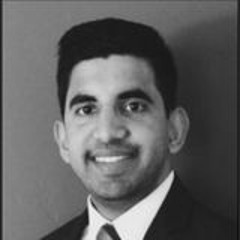
Praneet Mylavarapu, MD, Northwestern University
Bio: Dr. Praneet Mylavarapu is an M.S. in Artificial Intelligence candidate at Northwestern University as a member of Northwestern’s Bluhm Cardiovascular Institute Fellowship Program in Artificial Intelligence in Cardiovascular Disease. He graduated from internal medicine residency at the University of California, San Diego and plans to enter a cardiology fellowship upon completion of his HeartShare fellowship. He is interested in applying machine learning and artificial intelligence for cardiovascular disease classification and treatment. His project on using machine learning to predict atrial fibrillation ablation outcomes earned the Young Investigator Award at Heart Rhythm Society 2021. Currently, he is working on computer vision for echocardiography and ECG analysis to better understand HFpEF.

Oday Salman, MD, University of Pennsylvania
Bio: Dr. Oday Salman received his BS degree with distinction in biology from the American University of Beirut (AUB) in 2016, followed by his MD in 2020. Following graduation, he worked for 2 years at AUB medical center, one of the largest and most capable tertiary care facilities in the Middle East – North Africa region, in the emergency department as a research scholar and moonlighter. He subsequently joined Dr. Julio Chirinos’s core lab in March 2022 at the University of Pennsylvania as a postdoctoral research fellow where he started working on multiple projects involving proteomics and genomics. He plans to hone his skills in machine learning in hopes of leading an impactful HFpEF-related research project that integrates machine learning models as part of the HeartShare fellowship curriculum.
